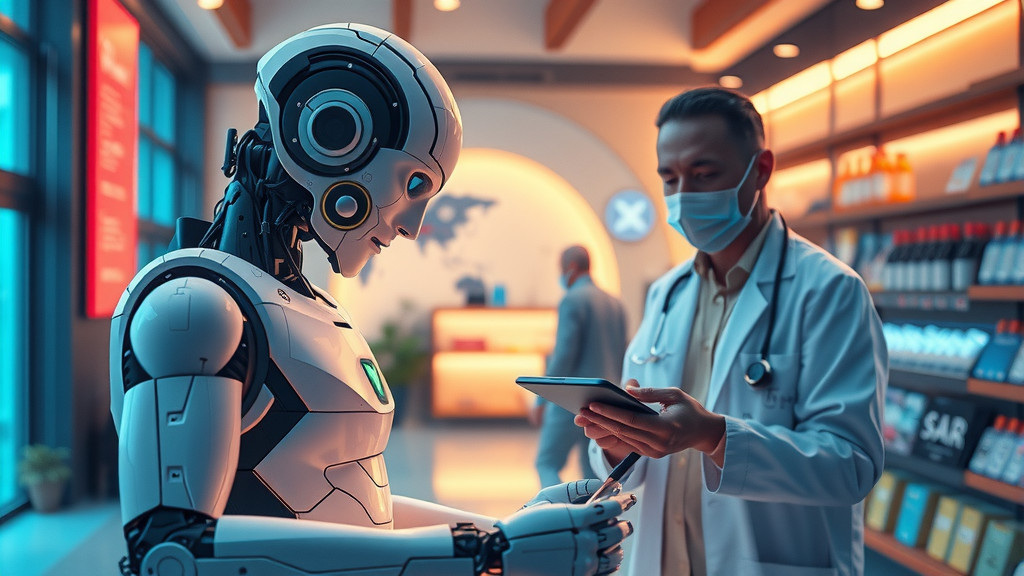In recent developments, artificial intelligence (AI) has made significant strides across various sectors, transforming how we interact with technology and each other. From the creative realms of art and software to the critical domains of healthcare and retail, AI is no longer a distant concept but a tangible reality shaping our daily lives.
AI in Art and Software
Microsoft's recent update to its iconic Paint application, untouched since 1985, exemplifies the integration of AI into familiar tools. The addition of AI features like generative fill and erase, powered by OpenAI's Dall-E, allows users to create sophisticated artwork effortlessly. This move not only democratizes art creation but also highlights AI's potential to enhance user experience across diverse applications.
AI in Healthcare
Precision healthcare, driven by AI, is revolutionizing patient care. Dr. Anmol Kapoor, founder of CardiAI and BioAro, emphasizes the role of AI in genomic analysis and multi-omic integration. By leveraging AI, health systems can offer personalized treatments, early disease detection, and operational efficiency. Blockchain technology further secures sensitive genomic information, ensuring data integrity and patient privacy.
AI in Retail and Customer Service
AI is reshaping retail with tools like Coveo's personalization for Shopify Plus stores and Physical Intelligence's dexterous robots funded by Jeff Bezos. Google's Lens tool processes billions of monthly searches, transforming camera searches into a significant shopping revolution. Meanwhile, quick-service restaurants like Taco Bell are adopting AI-powered voice technology to handle millions of customer orders, boosting speed and accuracy while ensuring human oversight remains crucial.
AI in Judicial Processes
The U.S. Judicial Conference's Advisory Committee on Evidence Rules is developing guidelines to regulate AI-generated evidence, addressing concerns about reliability and 'deep fakes.' This proactive approach ensures that judicial processes adapt to the evolving technological landscape, maintaining the integrity of legal proceedings.
Key Takeaways
- AI is enhancing creativity and efficiency across software applications, from Microsoft Paint to retail technologies.
- Precision healthcare leverages AI for personalized treatments and secure genomic data management.
- AI-powered customer service is transforming retail and quick-service industries, balancing automation with human oversight.
- Regulatory bodies are proactively addressing the integration of AI in judicial processes to ensure fairness and reliability.
These advancements underscore AI's transformative potential, offering both opportunities and challenges that require careful navigation and ethical considerations.
Sources
- Voice AI Orders Go Mainstream With QSRs Leading the Way
- Microsoft added AI to software it has barely touched since 1985. The results are astonishing
- US judicial panel to develop rules to address AI-produced evidence
- Shopify, Amazon and Google Heat Up AI Retail Race
- Microsoft added AI to software it has barely touched since 1985. The results are astonishing
- IP Rights and AI Regulation: Finding the Right Balance
- OpenAI’s CEO Sam Altman Predicts AGI Could Appear Within Five Years, With Far Less Impact On Society Than Most Expect
- CatchPad uses AI to give athletes their own portable coach
- AI-driven precision healthcare is here – what you need to know
- Painting by A.I.-Powered Robot Sells for $1.1 Million
